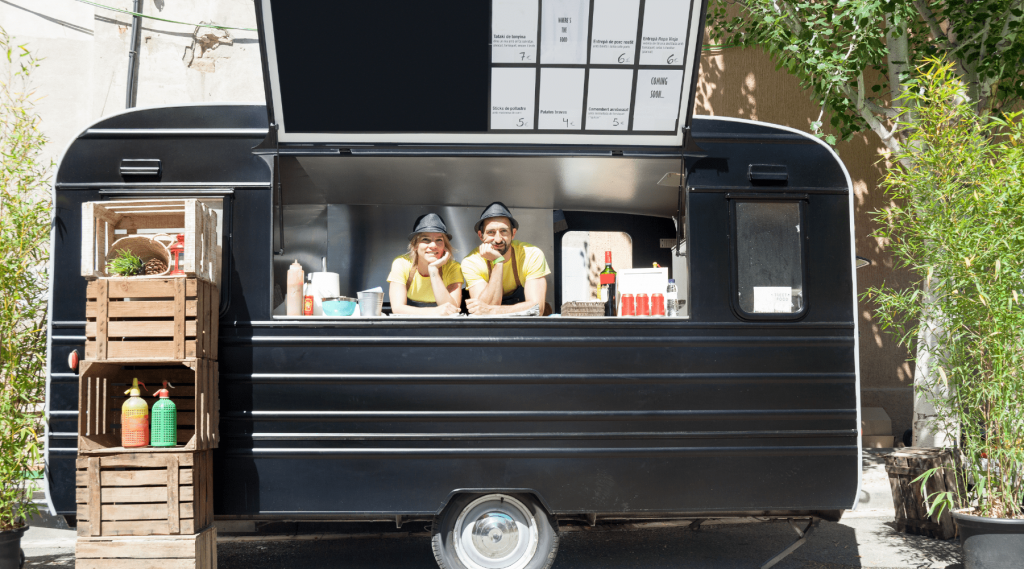How to create a restaurant business plan
If you’re considering opening a restaurant, one of the first things you need to know is how to create a restaurant business plan. If starting a restaurant has always been a dream, learning how to write a business plan will help you to succeed in the restaurant industry. It’s reported that 60% of new restaurants fail within the first year of business. Additionally, running a restaurant can be stressful with long hours and low pay. Approaching your restaurant as a business even before you open is one way to guard against becoming a premature closure statistic.
Creating a business plan for your restaurant helps you to understand everything that’s involved in running an eatery, including tax laws and compliance issues. Therefore, you’ll be better prepared to meet the inevitable challenges. When going through the process of writing a business plan for your restaurant, you’ll learn about different aspects of operating a business including how you fit in your local market and your competitors.
If you want to secure funding when starting your restaurant, you’ll have to provide your business plan to potential investors. Your business plan needs to look professional and demonstrate that you’ve considered all the necessary factors to start and operate a successful restaurant. Where you’re approaching a bank, you have to provide financial projections by demonstrating that you know accounting basics, such as the difference between revenue and profit. The bank will also need assurances that your restaurant will be profitable and you’ll be able to repay the loan.
Irrespective of the type of restaurant you’re thinking of starting, whether it’s fine dining, a coffee shop, or even food truck, learning how to write a business plan will prepare you for the challenges ahead.
Ask yourself the following questions before writing your restaurant business plan:
What type of restaurant do I want? There are different types of restaurants to choose from. The selection includes:
Fast food or quick serve – Restaurants like Wendy’s and Burger King are part of this category. This type of restaurant attracts customers who want cheap prices, speed, and convenience.
Fine dining – Customer service is a priority in this type of restaurant. Your staff will need to be trained to answer all questions relating to the menu and must be able to make suggestions in relation to food and wine.
Casual dining – A relaxed atmosphere with reasonably priced food characterizes a casual dining restaurant. This type of restaurant also includes a bar which stocks different types of liquors and beers.

When writing a business plan for your restaurant, you should incorporate some generic information that’s included in most general business plans. However, you need to include some elements that are specific to the restaurant industry. Before you start writing your business plan, it would be useful to read as many restaurant business plan samples as possible. Reviewing business plan samples for the restaurant industry provides you with ideas in relation to concepts, layouts, and writing styles.
Download this guide to start writing your own winning restaurant business plan:
Requirements for a restaurant business plan
The following includes the aspects that are required when creating your restaurant’s business plan.
Cover page with your branding
It’s important to make a great first impression when sending or handing out your business plan. Your cover page should include your name, the date and your logo (use a draft if you’re still working on the final image).Executive summary
This section will introduce the reader to your business and provide a brief summary about your restaurant. Your executive summary should include details like the name and location of your proposed restaurant. You should also provide details of your suitability to start and operate a restaurant. Mention the experience and qualifications that position you as the ideal person to run your restaurant.Mission statement
Your mission statement should tell the reader about the purpose of your restaurant. You should include details about the type of atmosphere your restaurant will have and also the experience you want guests to benefit from.Business concept
Use your business concept to bring your restaurant to life. Take this opportunity to provide details that will excite the reader about your proposal. Write about what inspired you to adopt this concept and the type of menu items you’ll serve. Provide information about your restaurant’s decor and atmosphere. You need to create a visual concept of your restaurant by providing information such as the floor plan and the furniture that will be used to set the tone. Use a mood board, which is essentially a collage of images, colors, and patterns to show how you want your restaurant to look. Emphasize what makes your restaurant unique and why your customers would choose you over your competition.Sample menu
Your menu items and the pricing are important aspects of your restaurant’s business plan. Due to the importance of this restaurant business plan item, you should consider designing a mock-up of your menu. Include your logo to give the reader a feel of what customers are likely to see when they look at your menu. You can use graphic design software, such as Canva or PicMonkey, to create a sample menu yourself. Alternatively, you could hire a designer to help with this task. The prices on your menu must be as a result of your analysis of costs and revising financial metrics such as the projected contribution margin ratio for each item. Formulating your menu based on research will demonstrate that you have an objective basis for setting your prices.

Service
Providing the best customer service is vital for any business but it’s of particular importance for fine dining restaurants. If your proposed restaurant is a fine dining establishment, you should pay particular attention to this section when writing your business plan. Explain how your guests will be served from the time they enter your restaurant until they leave. Write about the role of technology like restaurant management software plays in enhancing customer service. Provide specific examples of tools that will enable your employees to serve your customers better. Deputy is an example of a tool that schedules your restaurant’s employees and alerts them to the tasks they need to complete during their shifts. Schedule a call with one of Deputy’s rep and find out how employee management software can help your employees in your new restaurant to know where they need to be and what they need to be doing to ensure that all aspects of your restaurant are fully covered at all times.
Management and ownership
Use this section to expand on the information in the executive summary about why you’re qualified to start and operate your business. Go into detail about your work experience, business background, and transferable skills you’ve acquired. The information provided should be similar to what is contained in a resume. Additionally, include information about what you enjoy doing outside of work to provide your potential investors with a rounded view of you as an individual. You’ll also need to provide details of the management team you will recruit to help you to run your restaurant. A kitchen manager or a general dining room manager is normally one of the first roles to be filled in a new restaurant. Each team member’s role must be described along with the reasons for their inclusion as part of the team. This section should also contain how you’ll staff your restaurant. Explain whether you’ll use hourly employees and, if so, how many hours will they work? Also, if your restaurant will have a bar, will you hire barbacks as well as bartenders?Location
The location you choose will be based on your budget and your target market. There’s a lot to consider when looking for a space for lease. As you’re in the planning stage, you may not have identified the exact property for your restaurant. Include the areas that you’re considering in your business plan. Explain why you believe the areas are suitable. Include information that the reader will find useful, for example, demographics and accessibility. You can also provide more specific information about the property you need for your restaurant in terms of size and the number of rooms.
Market analysis
This section of your business plan will deal with the restaurant industry’s performance in your region. You need to demonstrate that you’ve researched whether restaurants are experiencing growth or experiencing a slump. You should be ready to explain your reasons for starting a restaurant in both markets. If the restaurant business is slow, you should detail how your restaurant will go against this trend. On the other hand, if the restaurant industry is booming, your business plan should contain the methods you’ll use to get diners to choose you.
Your market analysis also needs to include information about your target market. The reader needs to get a clear idea of who your restaurant will be serving and why they’ll want to eat at your restaurant. Include details about your target market’s age range, job, and average income. Your customer base needs to match up to your location and the price point of your menu items.
The marketing analysis section of your business plan must contain information about your competitors. You need to have a plan to show how you’ll entice customers away from your competition. The findings of your competitor research should help to determine your prices, menu, and opening hours.Branding and Marketing
Your branding is the most prominent aspect that will set you apart from your competitors. This is especially the case if you’re starting a restaurant that serves similar food to other restaurants in your area. Including your brand statement in your business plan tells the reader about your key messages, vision and how you’re different from your competition. Demonstrate that you know the importance of growing a brand following and how you plan to make your restaurant a well-known brand for your target market. After you have decided how you’ll brand your restaurant, your business plan must include details about how you’ll market your restaurant. Your business plan will need details about how you’ll market your restaurant using different channels like social media influencers, public relations, and Yelp. You need to provide details about how you’ll market your restaurant from day one. Provide examples of grand opening ideas to attract customers when your doors open. Write about any promotions that you’ll offer, for example, free lunch delivery. You can include details about the promotions at special times of the year, for instance, Valentine’s Day.Consultants and specialists
Due to the many requirements of opening a restaurant, your business plan needs to demonstrate that you’re aware of the types of expertise you’ll need. Provide information about the specialists you’ll use to ensure your restaurant runs smoothly. Ask yourself whether you need a labor lawyer. You can also write about how you plan to use an attorney to assess your business plan. You may need an accountant to help you with your finances. Other specialists you may choose to use include marketing consultants and designers.Financials
It’s advisable to prepare this part of your restaurant business plan with an accountant. Ideally, the accountant you choose will be experienced in preparing the finances specifically for restaurants. This will ensure that the accountant is familiar with different aspects of restaurant financials. Your accountant will be able to provide practical financial forecasts when you give them information such as the number of seats your restaurant will have and the average amount of your checks. Your financials also have to take into account the cost of the tools that you’ll be using, for instance, credit card readers.
Future growth
You should finish writing your restaurant business plan by including details about how you want your business to grow and how quickly. You could also include information about different exit options if your business does as well as projected.
Download this guide to start writing your own winning restaurant business plan:
Invest in your restaurant
Writing a business plan for a restaurant or coffee shop takes research and effort. However, spending time on this process will help you to enter into the restaurant industry with realistic expectations. Adequately staffing your restaurant could make the difference between success and failure. After your business plan has been approved and you’ve secured funding for your new restaurant, why not try Deputy for free to see how we can help you to have one less thing to worry about?
Deputy’s leading workforce management software is used across the globe to schedule, track time, and communicate with employees wherever they are. Sign up below for a free trial, and see how Deputy can improve your restaurant operations.
